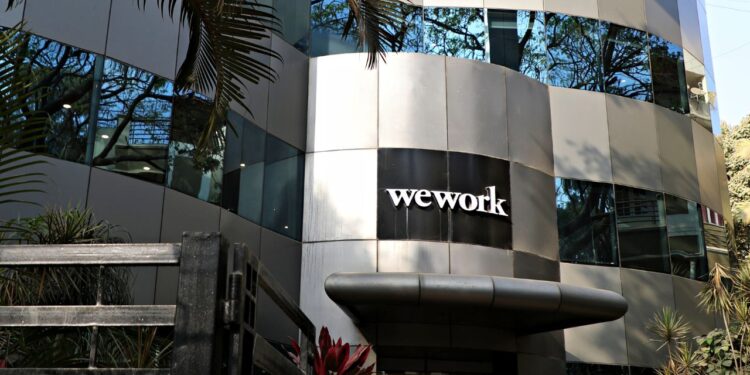WeWork has intentionally put itself on a path to default on its loans as it has chosen to withhold interest payments amounting to approximately $95 million as it continues trying to leap through financial hurdles to avoid bankruptcy.
As reported by Reuters, the decision by the flexible workspace provider is backed by SoftBank, and is a reflection of the financial challenges that WeWork has encountered since its failed attempt to go public in 2019. That year, investors expressed concerns over the company’s significant losses and began questioning the efficacy of its business model — which involves taking long-term leases and subleasing them on a short-term basis.
Those worried investors were right. Financial concerns have been piling on for years, but it was the impressive $700M crash of the coworking company this year that spurred dramatic changes in leadership and opened the possibility of bankruptcy. In August, WeWork had raised concerns about its ability to sustain business operations and has since executed a one-for-forty reverse stock split to maintain its listing on the New York Stock Exchange (NYSE).
Once celebrated as a promising start-up and innovator in the coworking industry, the company is now focused on implementing its strategic plan and improving its real estate portfolio through massive lease renegotiations.
Although WeWork has a 30-day grace period to settle these interest payments before it’s deemed a default, the company has clarified that it possesses the liquidity to make these payments and might decide to do so in the future. The withheld amounts include about $37.3 million in cash and $57.9 million in payment-in-kind (PIK) notes, according to Reuters.
WeWork’s financial moves and struggles are under the attentive watch of stock traders, landlords, and rival coworking operators. As the workforce evolves and values more flexibility, companies might reconsider long-term leases in favor of more adaptable arrangements — given the lessons learned from WeWork.















